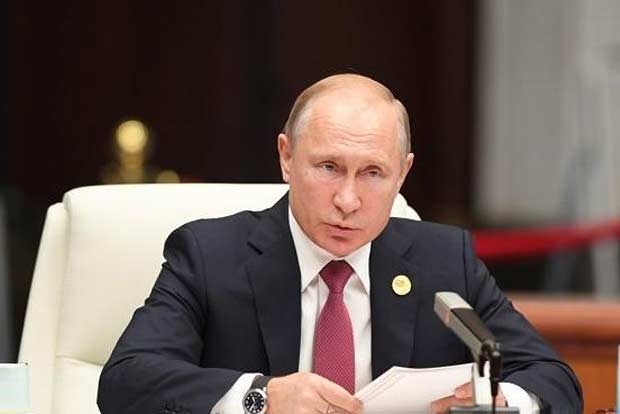Begin typing your search...
Putin is caught in a trap of his own making
The question is on everyone’s lips. Will President Vladimir Putin go to war against Ukraine? To judge by Russia’s propaganda machine, where media moguls are predicting a victory “in 48 hours,” the answer is an emphatic yes.

New York
The question is on everyone’s lips. Will President Vladimir Putin go to war against Ukraine? To judge by Russia’s propaganda machine, where media moguls are predicting a victory “in 48 hours,” the answer is an emphatic yes.
Yet the truth is more complex. While Putin undoubtedly regards Ukraine as little more than a Russian province, as he argued in a lengthy pseudo-historical treatise in July, it’s far from clear his aim was war. Outright conflict — as opposed to sudden swoops, covert operations or hybrid warfare — isn’t really Putin’s style. It’s probable that the troop buildup in November was an attempt to force the West to relinquish any claims over Ukraine. That would be a great PR victory at minimal cost.
But the West called his bluff. In the past week especially, the US and NATO have taken a markedly sharper tone when discussing Russia — and have, more important, sent military hardware across Eastern Europe and put troops on standby. The message is clear: If Russia won’t de-escalate, then neither will the West.
Instead of trapping the US, Putin has trapped himself. Caught between armed conflict and a humiliating retreat, he is now seeing his room for manoeuvre dwindling to nothing. He could invade and risk defeat, or he could pull back and have nothing to show for his brinkmanship. What happens next is unknown. But one thing is clear: Putin’s gamble has failed. It may not seem obvious that the Kremlin, which has steadily amassed over 100,000 soldiers at the Ukrainian border since November, was not aiming at war. But the reasons to believe that Russia will pull back from an invasion are many. For one thing, Putin — whose instinctive cautiousness I’ve observed at close quarters for two decades — has a record of withdrawing at the first sign of real conflict. When Russian mercenaries were killed by US troops in Syria in 2018, for example, he had the perfect opportunity to retaliate. Instead, Russia denied the slaughter ever took place. Likewise, when Turkish drones struck down Russian mercenaries and equipment in Libya and Syria, there wasn’t a peep of acknowledgment either. In fact, it seems that Putin was so conscious of Turkey’s might that he didn’t dare to join forces with Armenia when, in September 2020, its territory was attacked by Turkish-backed Azerbaijan. And after triumphantly sending in his troops to Kazakhstan for an indefinite time, Putin started to withdraw them very soon after Russia’s foreign minister took a call from his Chinese counterpart. Tellingly, Russia’s major successful military operations under Putin — the defeat of Georgia in 2008 and the annexation of Crimea in 2014 — happened when the West was looking the other way. In both cases, the world was caught unawares and Russia could complete its designs without the threat of armed international opposition. That is not the case now. What’s more, there are no internal reasons for pursuing a war. Yes, Putin’s ratings are down and prices are up, but there’s no major domestic unrest and elections are two years away. Putin doesn’t require an expansionist escapade to either shore up his rule or distract the population from its troubles. War is a big red button that can be pushed only once. Right now, there’s no need.
And then there’s the main reason: Russia would not be assured of victory. If he had little intention of invading, why did Putin raise the stakes so high? The answer is simple: Afghanistan. The West’s disastrous withdrawal from the country in August signalled the US’ waning appetite for entanglement abroad. Emboldened, Putin clearly decided it was a good time to press his case for a revision of the post-Cold War order. There is, perhaps, one certainty to hold on to: Putin will never start a war he’s likely to lose. So the only way to ensure peace is to guarantee that in a military confrontation, Putin would never win.
Latynina is a journalist who has reported extensively on Russia’s politics and foreign policy. NYT©2022
The New York Times
Visit news.dtnext.in to explore our interactive epaper!
Download the DT Next app for more exciting features!
Click here for iOS
Click here for Android
Next Story



